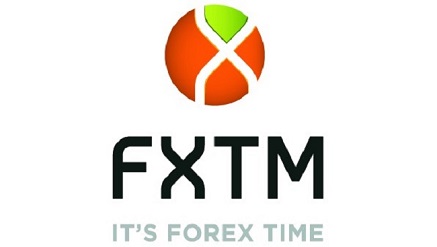General News
Oil: Will a sturdier floor make for a higher bounce?

By Han Tan, Market Analyst at FXTM,
In the third quarter, WTI crude is set to form a solid base to launch another attempt at the $65/bbl mark, providing the global demand outlook doesn’t deteriorate any further.
The downside for Oil appears to have been mitigated around the mid-$50/bbl range by the recent announcement of revived US-China trade talks, staving off the risk of an immediate deterioration in ties between the world’s two largest economies. Although the existing tariffs remain in place, the prospects of further levies being imposed has dwindled, at least for the time being. That ensures that the growth of global demand, while slowing, isn’t completely snuffed out.
Supply-side risks to remain manageable in Q3
On the supply side, the OPEC+ decision to maintain supply cuts at current levels until March 2020 should also set a stronger platform for Oil’s Q3 performance. Concerns about excess supplies flooding the market have been assuaged by a reported 163 percent compliance rate by OPEC+ members in May. With a goal in place to remove some 1.2 million barrels from global supplies in 2019, the tightened-for-longer Oil taps should ensure supply-side risks are managed.
Unexpected flare-up in geopolitical tensions could trigger fear-induced Oil spike
Simmering geopolitical tensions have also contributed to Oil’s rise as the current quarter begins. US sanctions on major producers have affected not just the physical delivery of crude, but also market sentiment. Oil market participants remain focused on US President Donald Trump’s Twitter activities, given his fervor for shaking up the global order while pre-empting his foreign policy moves with unexpected tweets. With market sentiment still fragile, any whiff of an escalation in geopolitical tensions could trigger a fear-induced spike in Oil prices.
Oil markets to remain cautiously optimistic in Q3
Still, investors might be remiss in believing that things are only looking up in the second half of the year. Developments surrounding US-China trade talks remain fluid, and recent history has shown that events can turn on a dime. Should negotiations between the world’s two largest economies hit yet another wall, the floor could give way beneath Oil. Also keep in mind that the existing tariffs already imposed by the US and China remain in place and have already dragged global growth lower. Additionally, should President Trump open up another front in US-led trade tensions, that will further darken the demand outlook for Oil.
US shale output could throw spanner into the works
Then there’s the surge in US shale output, which has been an unrelenting tide that threatens to drown attempts by OPEC+ to rebalance the markets. US supply has been on a record-chasing spree, having notched a new high for monthly output in April when it exceeded 12 million bpd, according to the US Energy Information Administration. Although the number of active rigs has dwindled as producers stateside appear to be shifting priorities towards profitability rather than output growth, their actions may not be enough to stop total US output from hitting 14 million bpd in 2020.
WTI crude expected to nudge higher in Q3
Such supply and demand risks could dampen the enthusiasm within the Oil markets for higher highs. Instead of leaping into the air, traders may just take measured moves in nudging prices higher. The key consideration for Oil in Q3 is how much resistance prices will face on the way up.
At the time of writing, WTI crude is trading below its 50- and 200-day moving averages. A break above those levels could be met with stiffer resistance at $61.92/bbl, while Oil’s immediate support line can be drawn at $52.28/bbl
General News
Court Freezes MCSN Copyright Levies amid Record Label Legal Battle

Justice Ambrose Lewis-Allagoa of the Federal High Court, Lagos, has issued an interim Mareva injunction freezing copyright levy funds due to the Musical Copyright Society of Nigeria (MCSN).

The order prevents the Central Bank of Nigeria (CBN) and at least 20 commercial banks from disbursing these funds until further court proceedings.
The injunction stems from Suit No. FHC/L/CS/207/2026, following an ex parte application filed on February 5, 2026, by the Record Label Proprietors’ Initiative on behalf of 11 major record labels and music companies.
Plaintiffs include industry heavyweights such as Mavin Records, Davido Music Worldwide, Chocolate City Music, Universal Music Group, Sony Music Africa, and Warner Music South Africa.
The plaintiffs, through their attorney, sought to restrain the CBN from releasing any copyright levy funds related to sound recordings earmarked for MCSN.
They also asked the court to bar MCSN and its agents from accessing, transferring, or using the funds, whether received directly from the CBN or routed through commercial banks.
General News
NITDA, HORSA Empower Lawmakers’ Spouses with Digital Skill

The National Information Technology Development Agency (NITDA), in partnership with the House of Representatives Spouses Association (HORSA), organized a specialized two‑day digital literacy and capacity‑building workshop for the spouses of members of the House of Representatives.

The initiative, themed “Empowering Women for a Digital Future: Leadership, Wellbeing, and Opportunity,” is designed to equip spouses of lawmakers with the tools needed to navigate the modern digital economy and the unique demands of public life.
Moving beyond basic computer literacy, the workshop offers a comprehensive suite of skills, including financial and digital literacy—focused on using digital tools for business growth and personal finance management; cybersecurity and digital wellbeing—promoting online safety, data protection, and mental health resilience; and economic empowerment—unlocking opportunities in remote work, Business Process Outsourcing (BPO), and digital entrepreneurship.
Declaring the workshop open on behalf of the Speaker of the House of Representatives, Rt. Hon. Tajudeen Abbas, PhD, the Deputy Speaker, Rt. Hon. Benjamin Okezie Kalu, said the workshop underscores the crucial role spouses play in supporting public office holders. He described spouses as trusted advisers whose understanding of legislative responsibilities helps lawmakers perform more effectively.
He noted that the demanding nature of legislative work often places strain on family life, adding that empowering spouses with digital and leadership skills would strengthen their capacity to provide informed support and constructive feedback to their partners in public service. He urged participants to take full advantage of the training, stressing that continuous learning is essential in an increasingly digital world.
Kalu further observed that many spouses already lead humanitarian and development initiatives in their communities, and that the skills gained from the programme would enhance communication, strategic planning, and resource mobilisation, thereby deepening their contribution to community development and national growth.
In his welcome address, the NITDA Director‑General, Kashifu Inuwa, said the initiative aligns with the Federal Government’s drive to build a sustainable digital economy by ensuring that no group is excluded from digital opportunities due to skills gaps. He noted that the Renewed Hope Agenda of Bola Ahmed Tinubu places digitalisation and innovation at the heart of economic diversification and inclusive growth.
He added that NITDA is implementing a national digital literacy framework aimed at achieving 95 per cent digital literacy by 2030, driven through three key focus areas: integrating digital skills into formal education, upskilling public servants, and expanding community‑level digital inclusion.
Inuwa described women as critical drivers of Nigeria’s digital transformation, noting that empowering spouses of lawmakers with digital skills would strengthen leadership at home and positively influence legislative processes at the National Assembly. He explained that NITDA is working with the Ministry of Education and global technology partners to train teachers nationwide, while over 54,000 public servants are currently enrolled in the Agency’s digital literacy programmes.
He also stated that through community champions deployed across the 36 states and the Federal Capital Territory, millions of Nigerians are being reached annually with basic digital skills training, stressing that national leaders must not be left behind in Nigeria’s digital transition. According to him, digitally literate spouses can play a vital role in encouraging technology‑driven governance, including ongoing efforts to digitise legislative processes.
In her goodwill message, the Leader of HORSA and wife of the Speaker, House of Representatives, Hajiya Fatima Tajudeen Abbas, described the workshop as a historic milestone and the first comprehensive capacity‑building programme organised by the 10th Assembly for spouses of lawmakers. She noted that public life in a digital age now extends beyond physical spaces into online platforms, making digital and financial literacy, cyber protection, and digital wellbeing essential skills for spouses of national leaders.
Hajiya Abbas emphasised that the sessions on mental health, emotional resilience, entrepreneurship, and leadership were timely, as spouses of public office holders often shoulder invisible emotional responsibilities. According to her, empowering women economically strengthens families and communities, adding that the knowledge gained from the workshop would not only support lawmakers behind the scenes but also enable women to contribute more meaningfully to national development in the digital economy.
The event also featured goodwill messages and contributions from senior government officials, including the Chief of Staff to the President, Hon. Femi Gbajabiamila; the Honourable Minister of Women Affairs and Social Development, Hon. Imaan Sulaiman Ibrahim; the Chairperson of the Nigeria Governors’ Spouses’ Forum, Prof. (Mrs.) Olufolake Abdulrazaq; the Chairman of the House Committee on ICT, Hon. Stanley Olajide; the Chairperson of the House Committee on Women Affairs and Social Development, Hon. Kafilat Ogbara; and the Managing Director of the South-South Development Commission, Usoro Offiong Akpabio.
General News
PalmPay Unveils First Batch of Winners in #LoveWithPalmPay Campaign

PalmPay is thrilled to announce the first set of winners of its highly anticipated Valentine-themed #LoveWithPalmPay campaign, following a week of receiving entries from users across the country, celebrating their real love stories shaped by simple money moments.

The #LoveWithPalmPay, a two-week campaign which started on the 9th of February until the 21st of February, has unveiled the first set of four (4) couples who shared their heartfelt stories of how PalmPay has positively impacted their relationships, from seamless transfers and bill payments to shared savings goals, dates, and everyday financial support.
The first batch of selected winners are:
- Abdulsalam Aishat Omowumi ( Facebook)
- Symply Omotoshan (Instagram)
- Unusual_aaron (Tiktok)
- MTN_DATA_VENDOR (X)
Speaking on the campaign, Olorunfemi Hanson, the Head of Marketing of PalmPay, stated, “We are using the campaign to appreciate our over 35 million users and the many ways they use the PalmPay app to make life seamless. The four (4) couples, each rewarded with ₦100,000, were chosen based on how effectively they highlighted PalmPay’s features and demonstrated how the platform helped their everyday payments be reliable and seamless.
PalmPay noted that with the campaign still ongoing, four (4) more couples will be announced in the coming days, encouraging more users to continue sharing their love stories using the hashtag #LoveWithPalmPay on PalmPay’s social media platforms.
The campaign reinforces PalmPay’s commitment to creating financial solutions that not only simplify transactions but also bring people closer through meaningful, everyday money moments.
PalmPay is a leading digital banking platform driving financial inclusion and economic empowerment in underserved emerging markets. Through its secure, user-friendly, and inclusive suite of financial services, PalmPay empowers individuals and businesses with tools to manage and grow their money.
PalmPay offers a comprehensive range of products, including mobile payments, savings, and micro-insurance via its app and mobile money agent network.

 Telecom3 days ago
Telecom3 days agoTerra Moves to Expand in African Drone Sector, Secures $22m Funding

 Telecom3 days ago
Telecom3 days agoTemu Assures Compliance Amid Nigeria Data Privacy Probe

 E-Financial3 days ago
E-Financial3 days agoDMO Offers ₦800bn FGN Bonds in February Auction Surge

 E-Financial3 days ago
E-Financial3 days agoDanjuma, Taj Bank Staff Jailed for 5 Years over N22m Fraud

 E-Financial3 days ago
E-Financial3 days agoKPMG Outlook Reveals Financial Services CEOs Double down on AI, Resilience and Growth in 2026

 Telecom3 days ago
Telecom3 days agoMTN Group Announces Proposed Full Acquisition of IHS Towers

 News3 days ago
News3 days agoChianugo, Nigerian $150m suit Against Google, GoDaddy.com Stalled due Judge’s Absence

 E-Financial2 days ago
E-Financial2 days agoEcobank Nigeria Fully Repays $300m Eurobond Notes




















